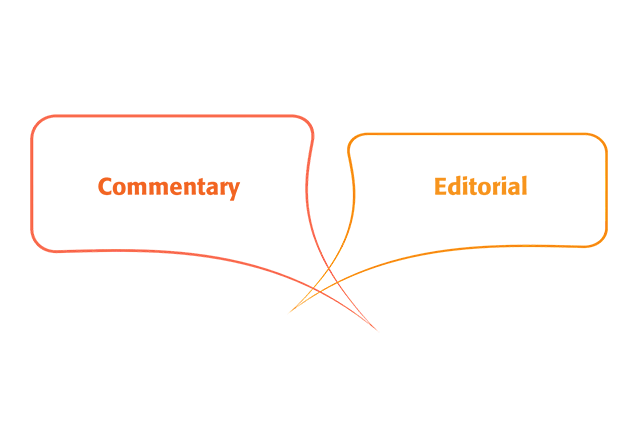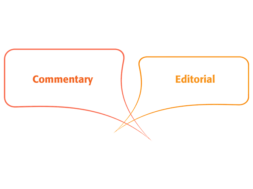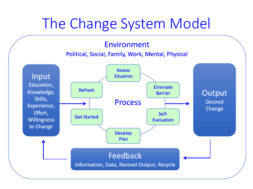
Department Sacrifices Access by Minority Students in Order to Settle an Old Score
By Anthony S. Bieda and Tom Wickenden, Arizona
Feb. 2, 2021
To the Editor:
Regressing to a policy that was dubious eight years ago, President Biden’s Department of Education has revived a misguided attack on career education by recommending the end of recognition for ACICS, once the primary accreditor of private, proprietary schools in the U.S. With accreditation comes access to federal students grants and subsidized education loans.
The demise of ACICS would simultaneously terminate education finance for thousands of students seeking a chance at economic stability and domestic sustainability and could lead to the closure of dozens of career colleges which provide an educational opportunity for millions of students of color.
In so doing, the denial action recommended by Department Staff will promote and expand the institutionalized racism that is part and parcel of the U.S. higher education system.
Low-profile in stature and generally relegated to the bottom rungs of the higher education caste system in the U.S., the career college sector is a robust and necessary developer of human talent, employment-related skills, and workforce-ready employees, many of whom have been recognized as essential workers during the pandemic. From cosmetology to health care, from IT to HVAC, the community depends on the graduates of these schools to fulfill patient care, personal care, computer systems maintenance and domestic life quality functions. In addition, our communities need training for green technology jobs and other low-natural resources sectors like logistics management and on-line retail.
The great economic disruption derived from the global pandemic means the need for re-training and skills acquisition among displaced workers will expand and intensify before it attenuates. The American economy needs these workers with their specialized skills and aptitudes to support and energize the economic, community and spiritual achievement. If education begets hope, these colleges and schools beget self-esteem, personal development, and enhanced access to economic opportunity.
Instead of using its regulatory power to control cost, the proposed Departmental action expands inequality and blames the victims, as well as the career colleges which encourage first-generation students to enroll in higher education. And the Department attacks the accreditation councils, like ACICS, which ensure high-quality career education that is designed by employer advisory boards and provided by faculty with employment experience and as well as academic credentials.
The Department recommendation is supported by elitist institutions of higher education which are structurally unable to provide career education and resent the fact that students at career colleges with greater financial need receive greater federal financial aid. Public universities resent that the Title IV program delivers student financial aid through a voucher system where the money follows the student, not the student following the money to an institution that the government designates as their enrollment site.
By treating career education differently from other forms of comprehensive education, the Department is promoting inequality.
That includes racial inequality as well as economic inequality due to the lack of education that leads to a lack of jobs and income. The Department’s disparate treatment of career education enables the price of all higher education to continue to rise, putting it out of reach for all but the wealthy. These discriminatory actions undermine the Department’s stated mission, which includes “Prohibiting discrimination and ensuring equal access to education.” More arrogantly, the Department’s undemocratic crusade against career education ignores the fact that getting a good job has been the number one goal of all students in the U.S. for more than ten years.
Rather than decimate the career college sector through biased reporting and unfair evaluations, the Department should work through the recognition process to strengthen and restructure regulation to support the sector, and to build it back better. Some tangible recommendations:
- Accreditation boards should have an equal number of public and industry members with additional input from students and faculty through a structured, recurring system.
- Financial aid should achieve equity, on a per student basis based on need, between career college and other sectors.
- Outcome and institutional effectiveness measures for determining governmental support should be similar for all sectors, including public higher ed, as well as private higher ed, and proprietary colleges and schools that draw upon private capital to initiate and sustain operations.
The Department has an opportunity, with its review of the ACICS compliance report, to contribute expertise, policy resources and governance impetus to the re-birth of effective career education. That renaissance is more important than ever in the wake of the pandemic and the economic hardships suffered by many communities of color and households of diversity. The demand for trained and work-ready employees has never been greater; the best policy is one that facilitates and grows the nation’s capacity to meet that demand with specialized, hands-on technical professional and occupational training sooner rather than later. Instead of rooting out racism and addressing inequality, the sense of urgency demonstrated by the Department’s staff recommendation is to punish, marginalize and settle old scores. Not an honorable way to begin President Biden’s term of service, and in conflict with his commitment to help Americans pursue post-secondary education in the pandemic era.
Tom
Tom Wickenden, Arizona
Tony
Anthony S. Bieda, Kentucky








Comment(1)